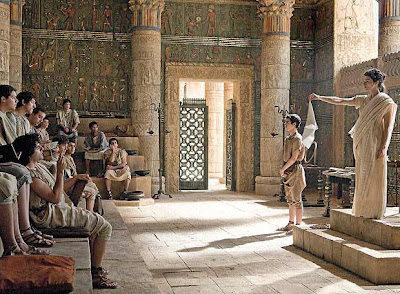Unstoppable
This week's movie rental was Unstoppable, a 2010 film directed by Tony Scott and starring Denzel Washington, Chris Pine (James Kirk of the new Star Trek), and Rosario Dawson. It tells the story of an unmanned runaway train carrying toxic chemicals and the heroic acts of two guys on a different train who risk their lives to save the day. The story was based on the real life CSX 8888 incident ....
The CSX 8888 incident, also known as the Crazy Eights incident, involved an unmanned runaway train led by CSX Transportation locomotive #8888, an EMD SD40-2, that was pulling a freight train consisting of 47 cars, some of them loaded with Molten Phenol, a highly explosive and largely toxic chemical. The train ran uncontrolled for two hours at speeds up to 51 miles per hour (82 km/h) through the U.S. state of Ohio. It was finally brought to a stop with the help of a railroad crew in a second locomotive, which caught up with the runaway and coupled to the rear car.
I rented the film because I like Denzel Washington and Chris Pine, and both of them were good in their roles, but the movie wasn't quite as exciting as I'd hoped. That may be because the film tried to stay true to the original events (or could be because I watch too much science fiction :), and if you like trains, you may find it more captivating than I did. One interesting thing, though, is that the movie does bring up the topic of hazardous materials like nuclear waste being shipped by train
Roger Ebert liked the movie more than I did, giving it three and a half stars out of four. Here's jut a bit of his review ....
Unstoppable
BY ROGER EBERT / November 10, 2010
[...] Scott tells the story from several points of view. In the cab of another train, a longtime engineer named Barnes (Denzel Washington) is breaking in a new man, Colson (Chris Pine). In the station yard, a yard master named Connie Hooper (Rosario Dawson) is in charge of dispatch and operations. In the railroad's corporate offices, an executive (Kevin Dunn) is concerned mostly about the cost of losing the train, which seems harsh, since it is carrying hazardous materials and is rocketing straight toward the heart of Scranton, Pa.
Overhead, news choppers circle, providing a live TV feed that Scott intercuts with the action. That allows him a plausible way to provide an overview and narrate the action; a similar device was used by his brother Ridley Scott to help us follow events in his "Black Hawk Down" (2001).
There isn't a lot of room here for personality development, but Washington and Pine provide convincing characters, the veteran driven by love of his job, the new guy more cynical. This conflict isn't ramped up for dramatic effect in the screenplay by Mark Bomback, but is allowed to play out as naturally as it can, under the circumstances. Rosario Dawson makes her dispatcher aggressively competent, and the hurtling train of course rumbles beneath everything ......































